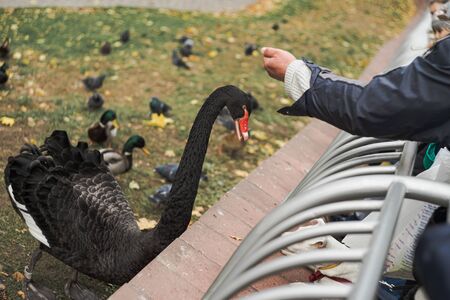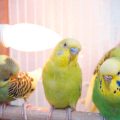The Connection Between Socialization and a Bird’s Overall Health
Introduction to Socialization in Pet Birds
When people think about pet birds, they often picture colorful feathers, cheerful chirping, and playful antics. However, one crucial aspect of bird care that is sometimes overlooked is socialization. Just like humans and other animals, birds thrive on interaction and engagement. Without proper socialization, pet birds can develop behavioral issues and even suffer from health problems.
What is Socialization for Pet Birds?
Socialization refers to the process of exposing a pet bird to various experiences, people, environments, and other animals in a positive and controlled manner. This helps the bird develop confidence, reduces stress, and encourages healthy behaviors. Socialized birds are generally more interactive, less fearful, and display fewer destructive or aggressive tendencies.
Why is Socialization Essential for a Birds Well-Being?
Birds are highly intelligent creatures that require mental stimulation and companionship to stay happy. In the wild, they live in flocks where they engage in constant social interactions. When kept as pets, they rely on their human caregivers or other household pets to fulfill this need. A lack of socialization can lead to loneliness, boredom, and even physical health issues.
Key Benefits of Socialization
| Benefit | Description |
|---|---|
| Reduced Stress & Anxiety | A well-socialized bird feels more secure in its environment, leading to lower stress levels. |
| Better Behavior | Socialized birds are less likely to develop aggressive or destructive habits. |
| Mental Stimulation | Interacting with humans and other pets keeps a bird engaged and prevents boredom. |
| Physical Health | A happy bird is more likely to eat well, exercise, and maintain overall good health. |
| Easier Training | A bird that is comfortable around people responds better to training and new experiences. |
2. The Psychological Benefits of Socialization
Socialization plays a crucial role in a bird’s mental well-being. Just like humans, birds are social creatures that thrive on interaction and engagement. Whether it’s bonding with their human caregivers or communicating with other birds, socialization provides mental stimulation and emotional security. Without proper social interaction, birds may develop stress-related behaviors that can negatively impact their overall health.
How Interaction Reduces Stress
When birds engage with their environment through socialization, they experience lower stress levels. A bird that feels isolated or lacks mental stimulation may exhibit negative behaviors such as feather plucking, excessive vocalization, or even aggression. Regular interaction helps prevent these issues by keeping the bird mentally active and emotionally satisfied.
Common Signs of Stress in Birds
| Behavior | Possible Cause |
|---|---|
| Feather Plucking | Lack of interaction or boredom |
| Excessive Screaming | Anxiety due to loneliness |
| Aggressive Behavior | Lack of trust or insufficient socialization |
| Lethargy or Depression | No stimulation from environment or companions |
The Role of Human Interaction
A bird that regularly interacts with its owner tends to be more confident and emotionally balanced. Simple activities such as talking to your bird, teaching new words, or playing interactive games can strengthen your bond and provide essential mental engagement. Birds that form strong connections with their owners are less likely to experience anxiety and destructive habits.
The Importance of Socializing with Other Birds
If possible, allowing your bird to interact with others of its kind can significantly improve its well-being. Birds communicate through body language, vocalizations, and shared activities, which help them feel secure and content. For species that naturally live in flocks, having a companion bird can prevent feelings of isolation and enhance their overall happiness.
Ways to Encourage Healthy Socialization
- Toys and Puzzles: Providing interactive toys keeps birds engaged when human interaction isn’t possible.
- Mimicking Natural Behaviors: Observing how birds interact in the wild can help owners create a stimulating environment.
- Sufficient Out-of-Cage Time: Allowing birds time outside their cage promotes exploration and confidence.
- Diverse Social Experiences: Introducing your bird to new people or safe environments helps prevent fearfulness.
- If Possible, a Companion Bird: Some species benefit from having another bird for company.
The psychological benefits of socialization are essential for maintaining a happy and healthy bird. By ensuring regular interaction, both with humans and other birds when appropriate, owners can help their feathered friends lead fulfilling lives free from unnecessary stress.
![]()
3. Physical Health Linked to Social Interaction
Socialization plays a crucial role in maintaining a bird’s physical health. Just like humans, birds thrive when they have regular interaction, stimulation, and engagement. A well-socialized bird is more likely to develop healthier eating habits, stay active, and show overall vitality.
Better Eating Habits Through Socialization
Birds that are regularly engaged with their owners or other birds tend to have better eating habits. When birds feel isolated, they may become stressed, leading to poor appetite or selective eating. On the other hand, social interaction can encourage birds to eat a well-balanced diet. For instance, if they see their owner enjoying fresh fruits and vegetables, they might be more inclined to try them as well.
How Socialization Impacts Eating Behavior
| Socialization Level | Eating Habits |
|---|---|
| Highly Socialized | Eats a variety of foods, tries new items, maintains a balanced diet |
| Moderately Socialized | Eats well but may be hesitant to try new foods |
| Poorly Socialized | Picky eater, may refuse certain foods, prone to nutritional deficiencies |
The Role of Exercise in a Social Bird’s Life
A social bird is naturally more active. Interaction with humans or other birds encourages movement, whether it’s through playtime, flying around the home, or engaging in stimulating activities like foraging. Birds that lack socialization often remain sedentary, which can lead to weight gain and other health issues.
Ways Social Interaction Promotes Exercise
- Encourages Play: Birds that engage with their owners often enjoy playing with toys or engaging in interactive games.
- Mimicking Behavior: Watching other birds or their owners move around can inspire them to be more active.
- Mental Stimulation: Engaged birds are more curious and willing to explore their environment.
The Link Between Vitality and Companionship
A socially engaged bird tends to be happier and more energetic. Loneliness can lead to stress-related illnesses, while companionship helps keep birds mentally and physically healthy. Birds that receive regular attention display brighter feathers, better posture, and an overall sense of well-being.
Signs of a Healthy, Well-Socialized Bird:
- Smooth and vibrant feathers
- An active and playful demeanor
- A strong appetite for a varied diet
- A willingness to interact with people or other birds
- No signs of stress-related behaviors like feather plucking or excessive screaming
The connection between socialization and physical health is undeniable. Birds that receive consistent interaction enjoy better eating habits, stay active through play and exploration, and exhibit greater vitality overall. Ensuring your bird has plenty of social opportunities will contribute significantly to their long-term health and happiness.
4. The Risks of Isolation
Socialization plays a crucial role in a bird’s overall health, and isolation can lead to serious negative effects. Birds are highly social creatures, and when they don’t receive enough interaction, they may develop behavioral and health issues.
Behavioral Issues Caused by Loneliness
When birds experience prolonged isolation, they often develop behavioral problems that can be difficult to correct. Some common signs of social deprivation include:
| Behavioral Issue | Description |
|---|---|
| Feather Plucking | A lonely bird may excessively groom itself, leading to feather loss and skin damage. |
| Aggression | Lack of socialization can make a bird more territorial or aggressive toward humans and other pets. |
| Excessive Screaming | A bird may vocalize loudly and persistently as a way to express frustration or seek attention. |
| Lethargy or Depression | An isolated bird may become less active, showing little interest in playing or eating. |
The Physical Impact of Social Deprivation
The stress caused by loneliness doesn’t just affect a bird’s behavior—it can also lead to serious health issues. Some potential health risks include:
- Weakened Immune System: Chronic stress from isolation can make birds more susceptible to illnesses.
- Poor Appetite: Birds that lack social engagement may eat less, leading to malnutrition.
- Cardiovascular Problems: Long-term stress can increase heart-related health risks.
- Diminished Lifespan: Birds that experience prolonged loneliness often have shorter lifespans due to the combined effects of stress and poor health.
The Importance of Social Interaction
A well-socialized bird is not only happier but also healthier. Providing regular interaction, mental stimulation, and opportunities for companionship can prevent these negative effects. Whether through human interaction, playtime with other birds, or environmental enrichment, ensuring your bird stays socially engaged is key to its well-being.
5. Tips for Properly Socializing Your Bird
Socialization plays a crucial role in your bird’s overall health and happiness. Birds are intelligent, social creatures that thrive on interaction and mental stimulation. By properly socializing your feathered friend, you can help prevent behavioral issues, reduce stress, and strengthen your bond. Here are some practical tips to help you engage with your bird, introduce it to new experiences, and create a socially enriching environment.
Engaging with Your Bird Daily
Consistency is key when it comes to bonding with your bird. Regular interaction helps build trust and confidence. Here are some ways to engage with your bird every day:
- Talk to Your Bird: Speak to your bird in a calm and friendly tone. Birds enjoy hearing their owner’s voice and may even learn words over time.
- Hand-Feeding Treats: Offering treats by hand helps your bird associate you with positive experiences.
- Interactive Playtime: Use toys, mirrors, or foraging activities to keep your bird entertained.
- Training Sessions: Teaching simple commands like “step up” or “wave” can make handling easier and more enjoyable.
Introducing Your Bird to New Experiences
Your bird’s world should not be limited to its cage. Introducing new experiences can prevent boredom and encourage curiosity. Below are some safe ways to expose your bird to new things:
| New Experience | Description | Benefits |
|---|---|---|
| Diverse Environments | Allow your bird to explore different rooms under supervision. | Keeps them mentally stimulated and prevents fear of new spaces. |
| New People | Slowly introduce trusted friends or family members. | Makes them comfortable around different individuals. |
| Toys & Perches | Add a variety of toys, textures, and perches in their cage. | Presents mental challenges and encourages natural behaviors. |
| Naturally Occurring Sounds | Play soft music, nature sounds, or gentle household noises. | Makes them less sensitive to sudden loud sounds. |
Creating a Socially Enriching Environment
Your bird’s surroundings should encourage social interaction while providing security. Here’s how you can enhance their environment:
Selecting the Right Cage Location
- Avoid placing the cage in isolated areas; instead, keep it in a room where family members frequently gather.
- Avoid direct exposure to loud noises like TV speakers or kitchen appliances.
- A well-lit area with access to natural light (but not direct sunlight) is ideal for maintaining a natural rhythm.
The Importance of Routine
A predictable schedule helps birds feel secure. Try maintaining consistent feeding times, play sessions, and rest periods so they know what to expect each day.
The Role of Other Pets & Birds
If you have other pets, introduce them carefully and ensure interactions are supervised. If possible, consider getting another bird as a companion—some species thrive better with a flockmate.
A Patient Approach Leads to Success
The key to proper socialization is patience. Every bird has a unique personality, so progress may take time. Move at their pace, respect their comfort levels, and celebrate small achievements along the way!
6. Conclusion: A Happy, Healthy Bird Through Socialization
Socialization plays a crucial role in your bird’s overall health and well-being. Just like humans, birds thrive when they have meaningful interactions with their environment, caregivers, and even other birds. Ensuring that your feathered companion receives daily social engagement can lead to a happier, more balanced life.
Key Benefits of Socialization
| Benefit | Description |
|---|---|
| Mental Stimulation | Interacting with people and surroundings prevents boredom and reduces stress. |
| Emotional Well-Being | A well-socialized bird feels secure, loved, and less prone to anxiety or depression. |
| Physical Health | Engaging activities encourage movement, preventing obesity and related health issues. |
| Stronger Bond | Regular interaction strengthens the trust between you and your pet bird. |
Simple Ways to Increase Social Interaction
- Talk to Your Bird: Engage in conversations, use different tones, and call them by name.
- Provide Toys and Activities: Rotate toys regularly to keep them entertained.
- Create Routine Playtime: Set aside time each day for out-of-cage interaction.
- Encourage Safe Socialization: If possible, introduce them to other friendly birds under supervision.
Your Role as a Bird Owner
Your bird depends on you for companionship and stimulation. Prioritizing social interaction helps prevent behavioral problems such as feather plucking or excessive screaming. By making an effort to engage with your bird daily, you are not only enriching their life but also strengthening the special bond you share.
A happy bird is a healthy bird. With consistent care, love, and socialization, your feathered friend will live a more fulfilling life. Start today by incorporating more positive interactions into their routine—you’ll both benefit from it!


